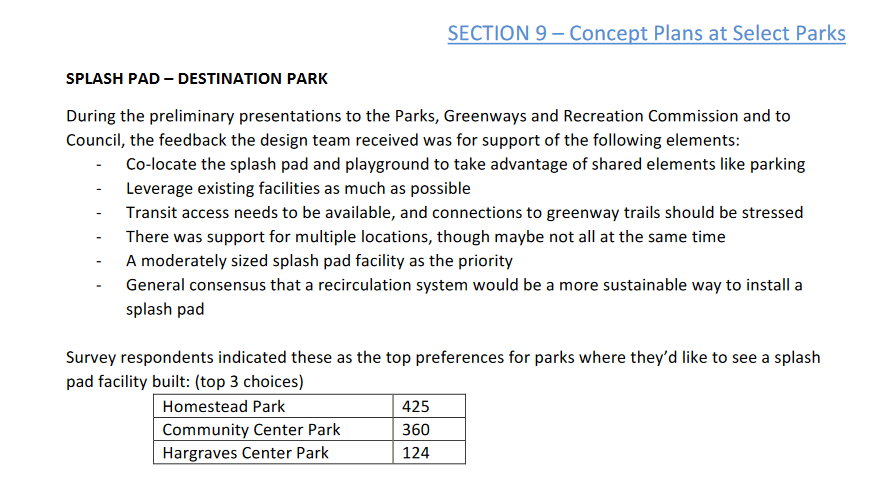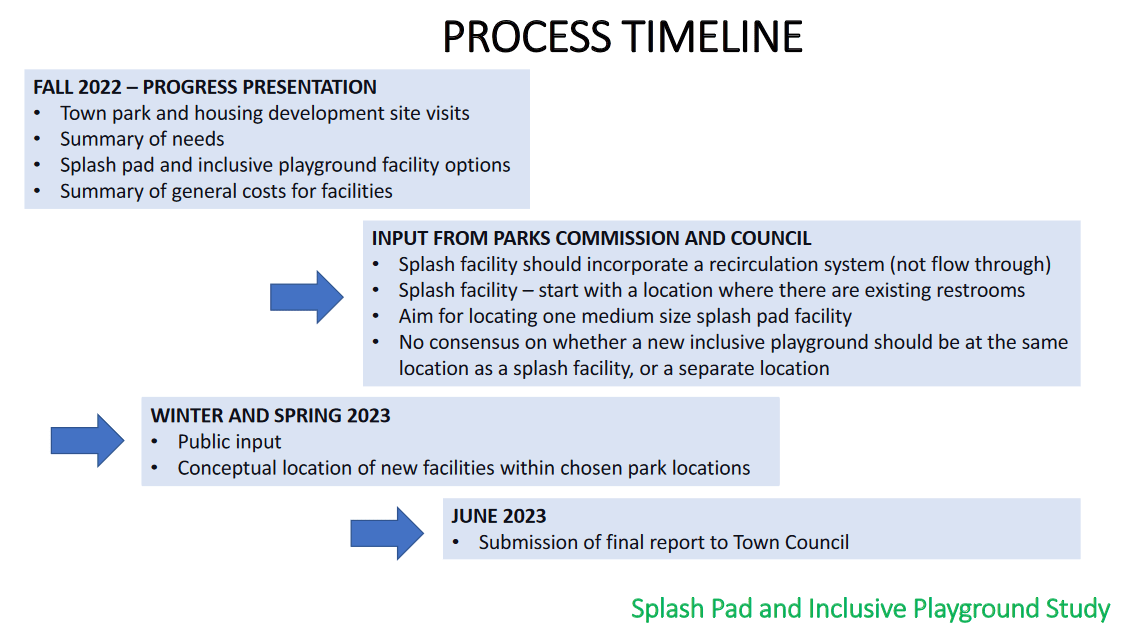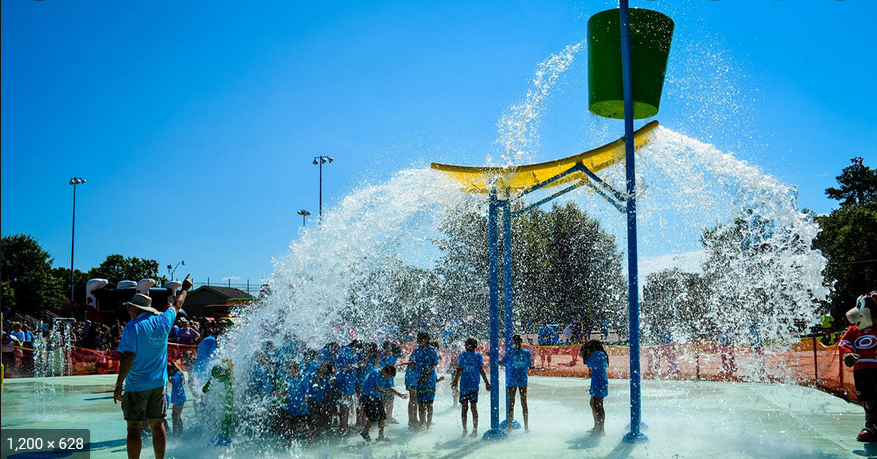We see a number of people running for council and mayor (Searing, Soll, Eckhardt) mention that Town Council is not listening to Chapel Hill residents who want a splash pad.
Why might they say that? Because it seems their coordinated campaigns will emphasize that the current council simply doesn’t listen to residents.
But what if that’s simply untrue?
As the investigative team behind Chapel Hill’s Splash Pad Location Activation Tracker and some of the biggest splash pad cheerleaders—we have young children and inspired hundreds of people to fill out the town’s splash pad survey last year—we would like to correct some of the misinformation already starting to trickle-splash out of these campaigns.
A short timeline if you don’t keep up with the latest in splash pad news:
- In July 2021, Chapel Hill resident Kate Sayre created a petition asking Town Council to build a splash pad.
- In response, the town created a splash pad working group and Sayre was invited to present to the Parks and Rec Department.
- As a result of these meetings, Town Council recommended hiring a consultant to assess the suitability of eight sites for a splash pad (and inclusive playground.)
- The town then developed a community engagement survey, to get resident feedback on where a splash pad could go. They also held public meetings and virtual office hours for several months, reaching over 75,000 people online and off. Almost 1,000 people took the survey.
- The splash pad plan was then presented to both the Parks, Greenways, and Recreation Commission and Town Council.
- As a result of those meetings, Chapel Hill Town Council asked for a feasibility study on the location of a splash pad. They also gave feedback, summarized here.

The study, prepared by Thomas and Hutton and the 80 West Group, took several months to complete because it was quite detailed, and involved reviewing sites, getting OWASA feedback, conducting interviews, looking at demographic information, conducting a cost estimate for each site, and assessing nearby splash pads.
To reiterate, a petition that began with the advocacy of just one person was quickly responded to by the Town Council and town staff. They worked so quickly to respond they probably worked up quite a sweat and could use a break under the
And we’re not done yet.
The report was just issued in June. You can read it here.
The report details the next steps for both the inclusive playground—which recently received over $700,000 in ARPA funds—and for the splash pad. The next steps are to obtain funding— which is now possible because of the feasibility study. (You can’t make a splash pad without knowing where it will go!) Many other communities partner with local Kiwanis or Lions groups to fund these kinds of projects. That’s the next step here—finding community partners who want to fund an amazing splash experience (or several) for kids.
We get that everyone is excited about a splash pad—and a splash pad is an easy thing to tout as part of an election campaign, because who doesn’t like splash pads? But to suggest that council isn’t listening or not following through on the splash pad is completely inaccurate. The timeline below shows that they have championed this project and pushed it forward in the way all civic projects move forward.

Local government can sometimes move more slowly than a giant yellow bucket filling with water that will eventually turn over and soak us all. That’s often due to public input, which these candidates also say they want a lot more of. And ideas are great—and easy to come by—but getting the details right is often what makes those ideas turn into reality. This is often slow, hard work—splash pads, for example, involve water and stormwater considerations, public access, transit access, equity considerations, and on and on. That’s the work the public doesn’t see—because it doesn’t make a splash—but it’s the hard work of governing.

